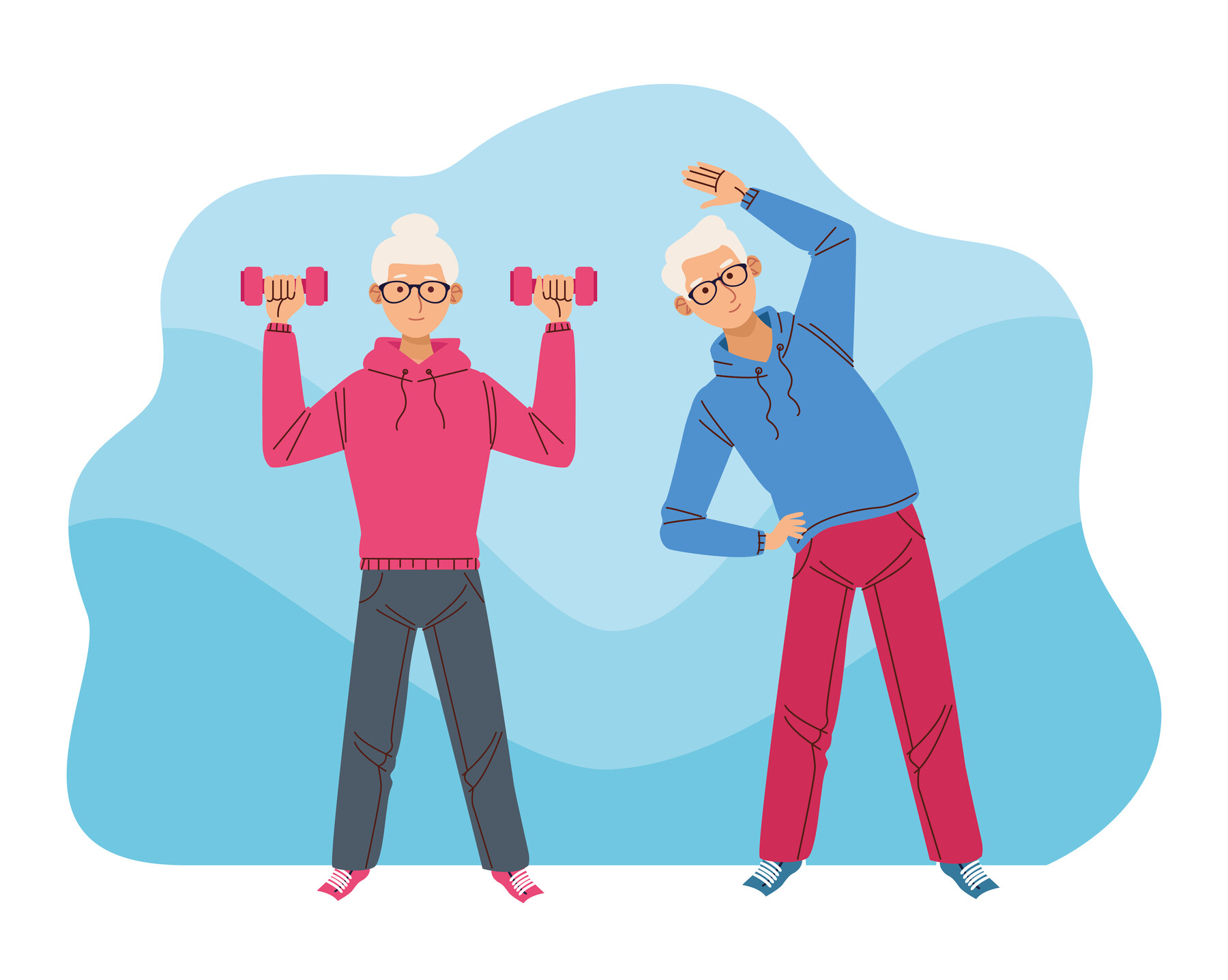As we age, regular physical activity is one of the best things we can do for our health. As stated by Centers for Disease Control and Prevention (CDC), exercising can delay or even prevent potential health issues that usually arise with age. In addition, it helps your muscles grow stronger allowing you to engage in your day-to-day activities without relying on others.
Any physical activity is better than none at all and may result in a wide variety of health benefits, according to the CDC. Those who suffer from chronic conditions may have a hard time engaging in vigorous or moderate physical activities and should be as physically active as their abilities allow. It is also crucial that older adults coordinate their exercise routines with their physicians and avoid straining their bodies. From brisk walking and jogging to muscle strengthening and swimming, staying active can make your life so much better.
Some people view regular exercise as a chore and seem to be reluctant to stick to their routine. Luckily, there are so many fun ways for older adults to stay physically active and stay in good shape. For example, joining efforts with your family is a great way to enjoy exercise. Have you ever considered playing team sports with your children or grandchildren? You may surprise them with your enthusiasm, energy level, and prowess. How about taking brisk walks with your spouse or friend, enjoy time spent together and get rewarded with improved health and a brighter outlook on life?
How about playing fun games that keep your body moving? Many older adults enjoy playing “Hide-and-Seek” or “Wheels on the Bus” with the little ones. And who doesn’t like pretending to be an animal (any animal!) and making children laugh? Just seeing your grandchildren have a great time may elevate your spirits and add years to your life. You can also build a fort or a sand castle together – inside or out. Have you ever considered taking swimming lessons or going biking with family or friends?
If hiking, playing ping pong, or skating is a bit overwhelming for you, why don’t you ask your children or grandchildren to help you in the garden or assist you with some heavy-duty chores, which is a good way to engage in a long conversation, confide in each other, and deepen your bond. This certainly doesn’t sound like a chore, does it? After all, you CAN hit two targets with one stone – enjoy quality time with the people you love and boost your health.
What’s great about exercising is that you don’t have to spend a fortune on it; there is no need for special equipment to strengthen your arms or exercise your legs. Turn bottles of water or soup cans into weights, or put on comfortable walking shoes and head out the door for a vigorous walk in the park. Be sure to check out your local senior center offering free dance classes or aerobic exercises for older adults. By the way, it may be a great way to meet new people, make friends, and get inspired by others.
There are many reasons why most people tend to slow down and become less active with age. Some older adults may have health problems, while others may be experiencing weight or pain issues. Sometimes, older adults worry about falling and getting hurt, which is a legitimate concern and may deter them from exercising.
There is one thing they should keep in mind: as we grow older, an active lifestyle becomes more crucial than ever to our health, as suggested by HelpGuide.org. In fact, a recent Swedish study found that physical exercise was the number one contributor to longevity and can add extra years to your life even if you start exercising in your older years. Furthermore, getting active is not just about adding years to your life – it’s about living your best life and infusing each day with energy, passion, and enthusiasm which usually comes from regular exercise. It’s good for your health, mind, body, and soul. In other words, the time to get moving is NOW!
The information in the above article is not intended nor implied to be a substitute for professional medical advice, diagnosis, or treatment. Always seek the advice of your physician or other qualified health provider with any questions you may have regarding a medical condition or beginning any exercise program.
